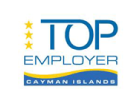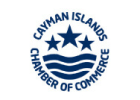By Jennifer Moseley
•
September 14, 2023
Should the Cayman Islands consider a Flexible Working Bill like is in place in the UK? According to our sister company Nova Recruitment’s 2023 Salary Insights & Recruitment Guide , flexible working options were the most important benefit candidates highlighted when polled. In the current employment market, individuals seeking jobs are increasingly valuing their health and well-being, as well as work-life balance. As a result, flexibility has become a highly sought-after benefit in a position, making it a valuable tool for employers to retain and attract top talent. What are Flexible Working Options? Flexible working options include hybrid work, working from home, remote work, flextime, condensed workweek, part-time and job-sharing options. In the Cayman Islands and many other offshore jurisdictions, flexible working is a key benefit that many employees and job seekers look for, but it is not governed by law. Could it be? In the UK, the answer to that question is yes, and it’s about to be even more so. UK Flexible Working Bill The Flexible Working Bill has been in existence since 2003, however, it has recently undergone some major upgrades. The updated Bill has recently passed its third reading and is awaiting Royal Assent . This update in UK legislation has seen several changes to how employers handle flexible working requests from their employees in England, Scotland, and Wales. What are the updates to the Bill? One of the main updates is the removal of the 26 weeks of service before being able to ask about flexible working options; employees can now ask from day one . Employees can make two flexible working requests in any 12-month period, updated from one. Employers must respond to flexible working requests within two months, updated from three. Employers must explore available/alternative options with their employees before rejecting any requests. If flexible working conditions cannot be offered, they must prove why. Journalist and campaigner Anna Whitehead , who played a huge role in getting the Flexible Working Bill passed, commented that “to be clear, the only job we reckon can’t be done flexibly – core hours, job shares, ward-led rostering, part-time, working from home, compressed hours – is on an oil rig”. What Does This Bill Mean For Employees? In response to the new Bill, the UK Government states that ‘millions of employees will receive day one right to request flexible working, empowering workers to have a greater say over when, where, and how they work’ and that ‘businesses [are] set to benefit from higher productivity and staff retention as a result.’ With these new updates to the Bill, parents who would have to leave their jobs due to the lack of flexibility can now request flex time or work-from-home options. Employees with chronic long-term conditions, disabled or those most vulnerable who desperately need flexibility can now continue to work while managing their conditions. Additionally, working families, especially those with young children trying to make ends meet during a cost-of-living crisis, can arrange childcare and remain in the workforce. According to Deloitte’s 2022 Women at Work report, they reported that globally women seeking new, more flexible working patterns, with some leaving their employer or workforce entirely due to the stigma attached to requesting flexible working options. ‘A massive 94% of women polled think that flexible working kept ‘mums in work’ and helped close the gender pay gap’ reported Deloitte. From a BBC article on the Bill, Peter Cheese, chief executive of the CIPD , which represents the human resources industry, said: ‘This new right will help normalise conversations about flexibility at the start of the employment relationship, with significant benefits for employees in terms of wellbeing and work-life balance.’ What Does This Bill Mean for Employers? Further results from Nova Recruitment’s Insights & Recruitment Guide found that employers ranked flexible working options as the least common benefit offered to their employees. In contrast to the fact that Cayman employees felt that flexible working options were no longer a perk and that embracing flexible working options should be common practice. As we navigate the aftermath of the pandemic, many employers are considering the idea of a full return to the office and a more structured work schedule. However, in the UK, with the passage of this new, updated Bill means that companies must prioritise employee flexibility requests and provide valid reasons as to why they could not be possible. There are, of course, benefits for businesses too, and many employers promote flexible working as good business sense: Attracting and retaining a skilled and diverse workforce can benefit your business with a higher level of skills that will drive success. Staff retention can also improve recruitment costs and boost job satisfaction and staff morale. Offering manageable hours can give your staff a better work-life balance, reducing sickness absences. Continuity from keeping experienced staff can provide an exceptional level of service. High retention rates can foster a positive environment that promotes employee relations, motivation, and commitment. A skilled and diverse workforce is vital to unlocking success and achieving long-term goals. Should the Cayman Islands Government Follow Suit? While we can’t comment on if Cayman would follow in the footsteps of the UK government, what we can say is that professionals want more say in where and when they work, and employers would be naïve to dismiss the topic outright. With a candidate-driven market in Cayman and other offshore jurisdictions, it is essential that companies embrace flexibility in their workplace, as it is such an in-demand benefit that top talent seeks. To cut out all flexibility could be harmful to hiring and retention strategies. As Nova states in their guide, “The key is finding which flexible work arrangements will provide sufficient flexibility to keep workers happy and attract top talent without negatively impacting culture, productivity, or work quality. Finally, your leaders must be appropriately trained.”








